And it has also received thousands of pages of documents making further allegations of abuse in Island care homes.
The inquiry recently released thousands of pages of previously unseen documents which included evidence relating to police investigations, witnesses statements and care home papers.
The documents, which total more than 2,000 pages and are published online, largely centre on potential witnesses who are now dead, those who were unwilling to give live oral evidence and people whom the inquiry decided not to call publicly, as it felt that the most efficient way to receive their evidence was through the documents.
Last week, the JEP reported that among these documents were allegations of sexual abuse against a high profile 1960s politician, a potential paedophile ring and suggestions of cover-ups.
With the inquiry currently on a break from public hearing until next week, the panel have been analysing the new evidence as well as preparing for the next phase of its investigation.
EDWARD PAISNEL
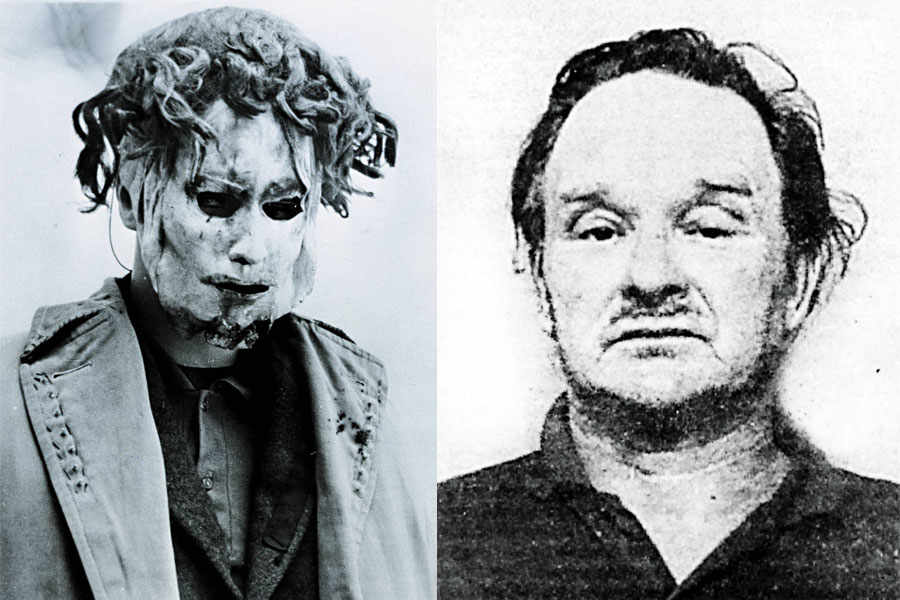
THE Independent Jersey Care Inquiry has already heard several allegations against notorious sex offender Edward Paisnel – dubbed the Beast of Jersey – who terrorised the Island in the 1960s and early 70s.
It has been claimed during public evidence that Paisnel regularly visited La Préférence, a home run by his mother-in-law, to abuse young residents.
Paisnel regularly attacked women and children by entering their homes and avoided identification by wearing a costume that included a grotesque rubber mask.
His reign of terror came to an end when he was stopped for a motoring offence and police found the mask in the boot.
Keep up to date with the latest from the inquiry here
In the recently released documents there were allegations that Paisnel was responsible for a number of incidents at Haut de la Garenne, which has not previously been heard.
During the 2008 police investigation into historical child abuse, the force was told by a former resident of Haut de la Garenne, that Paisnel crept into the home through the windows dressed in a mack and gloves.
In an officer’s report, the witness said that he saw the Beast ‘use chloroform while the children were sleeping and remove them from their beds’.
A further witness claims that the Beast of Jersey was a regular visitor to the home and visited dressed as Father Christmas.
The officer’s report states: ‘There are numerous references to Paisnel visiting Haut de la Garenne both legitimately and under more sinister circumstances.
‘It is an interesting point that when Wateridge was asked direct questions about Paisnel with regards to his knowledge of him and any association with Haut de la Garenne he answered “No comment”.’
In 2009, Wateridge himself was convicted of a number of sexual assaults against young girls and sentenced to two years in prison.
Despite the allegations made against Paisnel in relation to Haut de la Garenne, the Beast was not included in Operation Rectangle, as a police file states that there was ‘no firm evidence to hand in the investigation that Paisnel was responsible for any abuse that falls within the parameters’ of the investigation.
Included in the documents are minutes from police interviews with Paisnel. Paisnel declined to reply to most of the questions and on occasion challenged the police to ‘prove it’.
In 1971, Paisnel was sentenced to 30 years in prison after being convicted of 13 counts of rape, assault and sodomy.
He was later released and died in the Isle of Wight in 1994.
HEATHFIELD
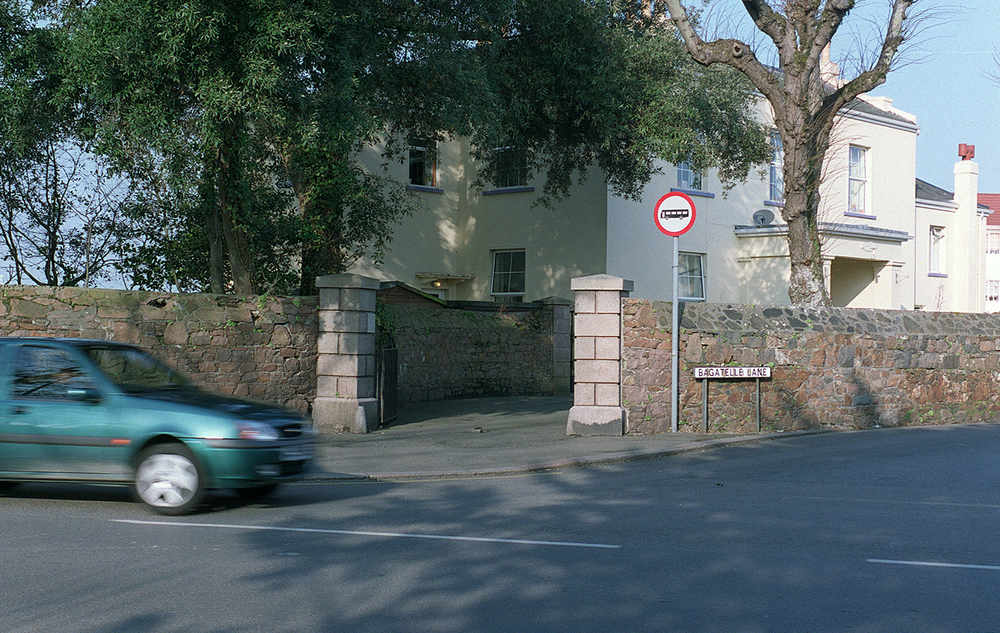
AMONG the thousands of documents, several police statements have revealed that a number of people felt that Children’s Services failed to adequately deal with allegations of abuse.
In a police interview in May 2008 Marisha Carter – a former manager at the Women’s Refuge – said she did not feel abuse allegations at Heathfield Children’s Home were dealt with properly.
She reportedly told police that she believed a former member of staff, referred to as Witness 753, had admitted having sex with one of the residents.
She claimed that although the member of staff was dismissed, she did not believe that Children’s Services told the police about the allegations.
Miss Carter also claimed that allegations had been made against a Witness 335, another former member of staff.
She says that at the time she told the member of staff what she had heard.
The man allegedly said that rather than contest the allegations he would flee the Island.
In a police statement, she said: ‘He was extremely agitated and appeared extremely concerned.
‘He stated that the boy in question had left the home but that he had been a trouble-maker while he had been a resident and that there were no foundations to the allegations.
‘He said that he intended leaving Jersey rather than face/contest the allegations.
‘I was totally amazed at this and ventured the opinion that he should contest the allegations.’
An officer’s report relating to information given by the former Women’s Refuge manager said: ‘Miss Carter is very much of the view that the Children’s Services do not like any kind of criticism.
‘She is mindful of the fact that the Children’s office hold the budget to the women’s refuge.
‘She does not speak highly of the management team above her.’
The inquiry has already heard allegations that Children’s Services attempted to cover up and pay off alleged child abusers rather than inform the police.
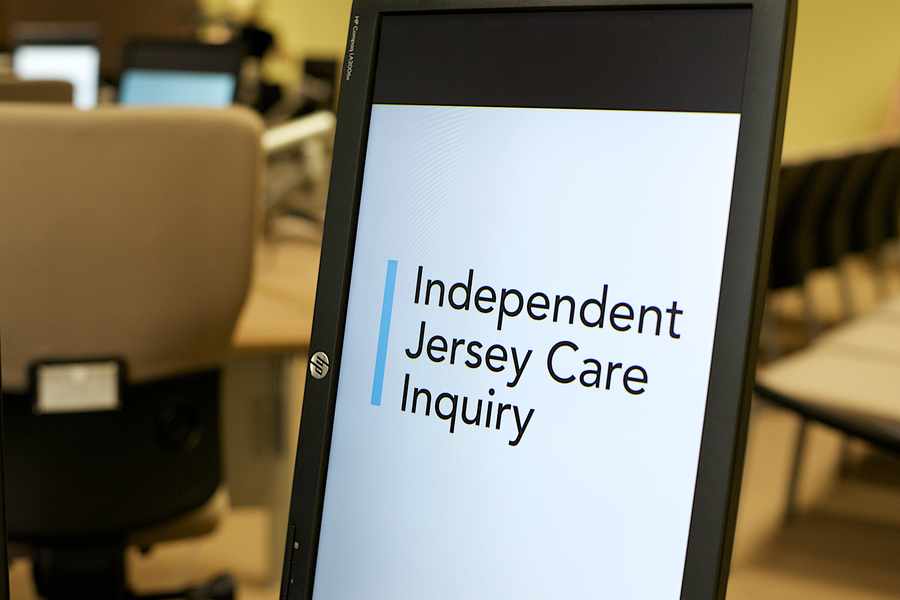
WHEN it resumes next week, the inquiry will shift its focus onto the handling of Operation Rectangle.
The inquiry is on a break from public hearings to prepare for the next phase, which was originally due to start this week, but has been delayed due to the amount of evidence that the panel has received.
Among those expected to give evidence during this phase of hearings is former deputy police chief Lenny Harper, who was heavily criticised for the way he handled the investigation.
He has previously confirmed to the JEP that he will give evidence to the inquiry, although it is unclear whether he will appear in person or via video link, and no date has yet been confirmed for his appearance.
The panel has also stated that it may recall previous witnesses to give further evidence relating to the recently disclosed documents.
The inquiry also has the power to call completely new witnesses as a result of evidence that the inquiry has already heard.
By the end of 2016, the panel is expected to produce a report, during which they can make recommendations for the future of the Island’s care provision.
2007
TOWARDS the end of the year the then deputy police chief, Lenny Harper, announced that the States police were investigating alleged historical child abuse at former States children’s homes.
An appeal for information was also launched and the investigation was overseen by police chief Graham Power.
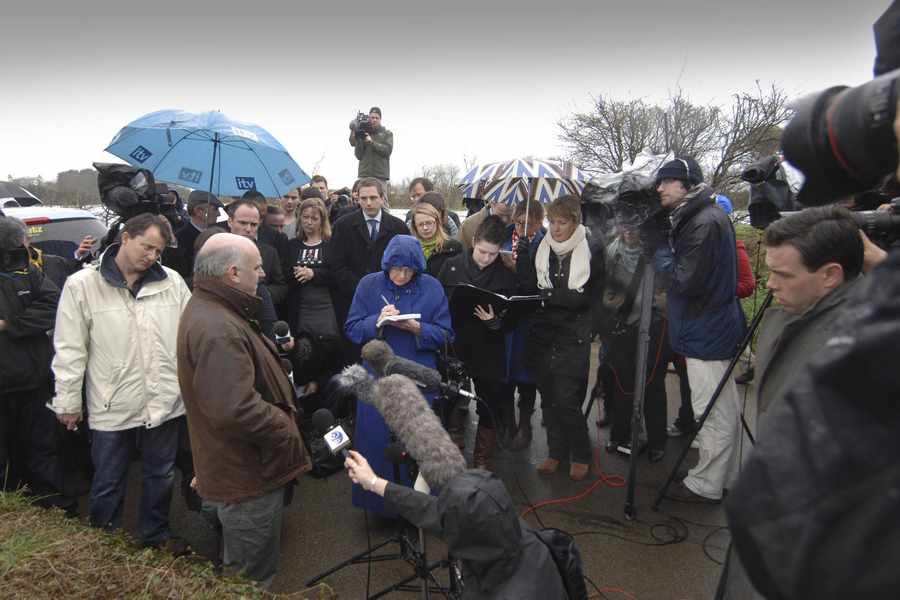
2008
ARRESTS relating to the abuse investigation began to be made at the end of January.
A few months later Mr Harper, the senior investigating officer, revealed that his team was excavating the former children’s home at Haut de la Garenne and that they had found what appeared to be a fragment of bone.
The announcement led to a swathe of lurid headlines in national newspapers, which carried stories of child torture and possible murder. In August Mr Harper retired and was replaced by David Warcup, a former deputy chief constable of Northumbria police.
Towards the end of the year Mr Warcup and the investigation’s new senior officer, Detective Superintendent Mick Gradwell, said that after a review of the evidence gathered, no child murders took place at Haut de la Garenne.
They also concluded that no bodies had been hidden or burned.
At the same time police chief Graham Power was suspended for his alleged poor handling of the abuse inquiry, but a report later found that he had been removed without proper evidence of incompetence.
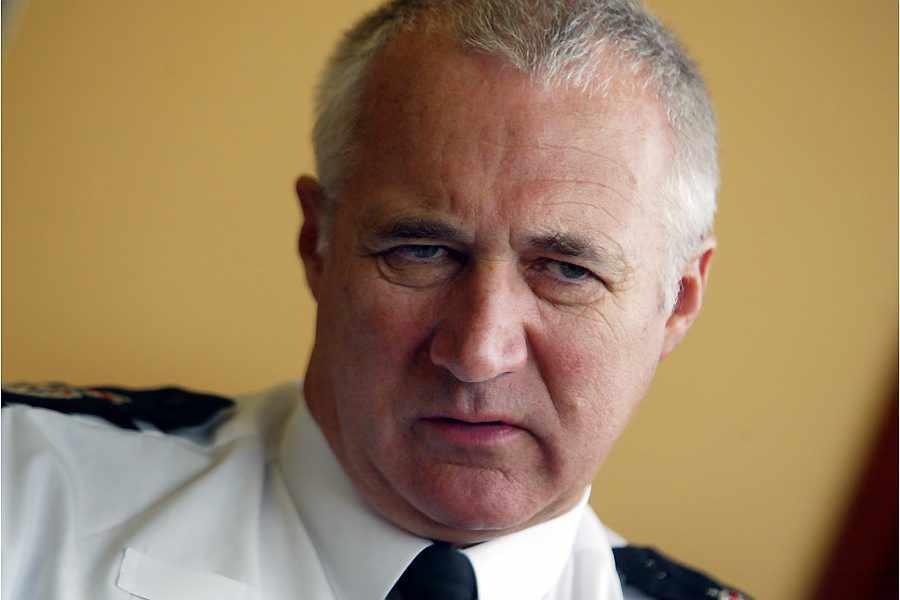
2009
IN May the fragment of material said to potentially have been part of a child’s skull was sent to botanists at Kew Gardens at the request of Det Supt Gradwell.
The report that followed confirmed that it was, in fact, a piece of coconut.
Also, Islanders arrested and convicted of abuse offences as part of the investigation began to be sentenced in 2009 as well.
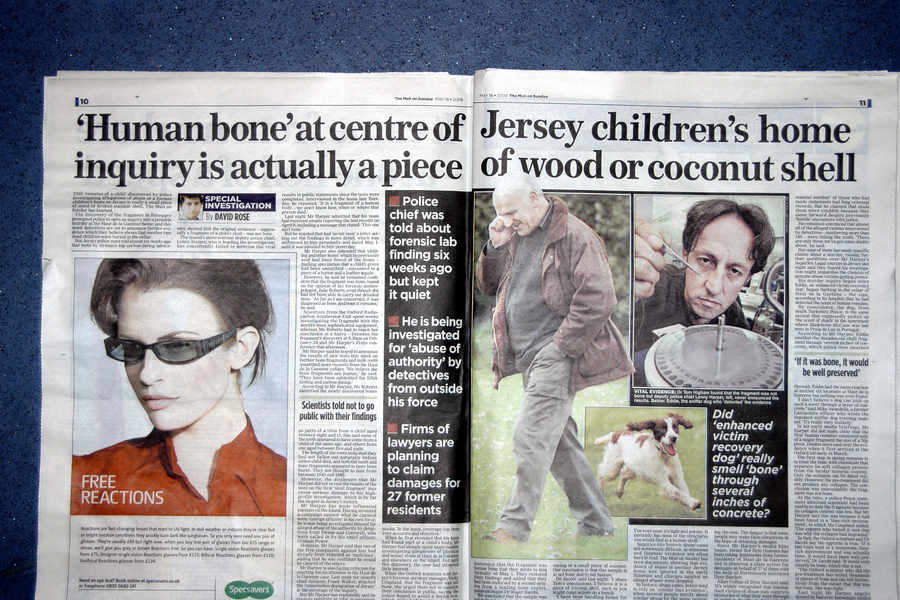
2010
THE Wiltshire Constabulary’s report – an independent review of the handling of the Haut de la Garenne investigation into child abuse – was published in 2010.
It levelled strong criticism at former police chief Graham Power and his deputy, Lenny Harper, for their handling of the investigation.
The Royal Court secured convictions against the last people involved in the abuse investigation.
Following this, the victims of child abuse received a formal apology from the then Chief Minister, Terry Le Sueur, who said that they had been let down by the system.
In June, 40 people who claimed they had suffered abuse while in States care made compensation claims.
The year 2010 also saw a report into the financial management of the abuse investigation published in July.
It found that public funds had been misspent on expensive meals, accommodation and first-class travel.
It also emerged that the total police costs for the three-year investigation had reached £7.5 million.
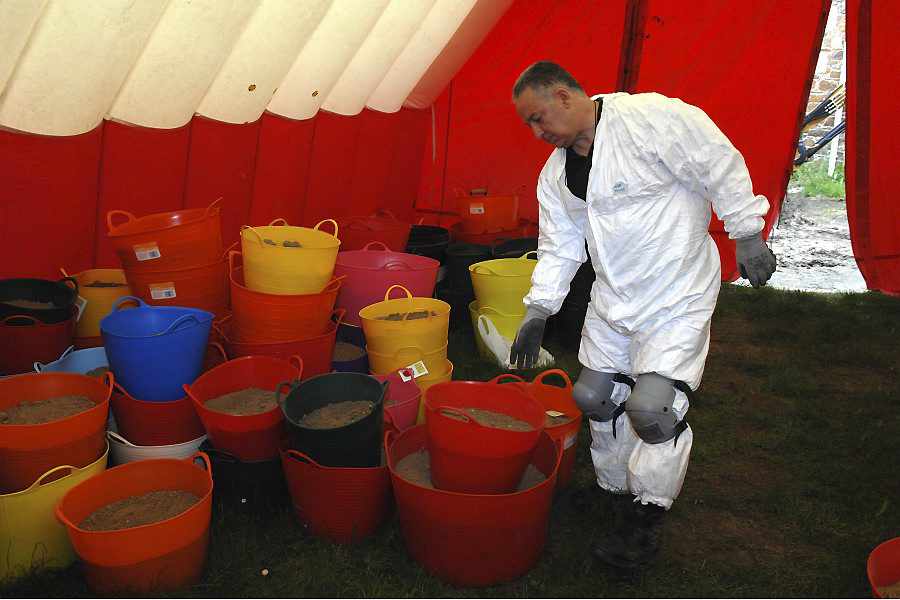
2011
FOLLOWING a proposition brought by Senator Francis Le Gresley, the States agreed to hold an inquiry into allegations of historical child abuse after the Haut de la Garenne investigation.
2012
AFTER a former Islander’s book was published, making claims of abuse at the former Grouville Girls’ Home, the police confirmed that six women had made complaints about the home to the force during the course of the historical child abuse investigation.
However, the police said that there was too little evidence in relation to the claims to mount a prosecution.
The author of the book, Jean Neil, included details of alleged abuse she suffered at the home between 1941 and 1951 in ‘Chairbound to Heavenbound’.
And 2012 also saw Jimmy Savile linked to Haut de la Garenne after pictures of the disgraced BBC star surfaced and were published in newspapers and online.
One online Daily Mail headline read: ‘Savile pictured at the Jersey House of Horrors: Paedophile DJ is surrounded by children at care home where 192 suffered abuse’.
2013
IT was hoped that the public inquiry into historical child abuse would get going in 2013, but half-way through the year Sally Bradley QC, the States-appointed chairman of the Committee of Inquiry, suffered a stroke.
The inquiry was delayed while a new chairman was found.
A few months later Frances Oldham QC, a senior lawyer with extensive experience in dealing with cases involving sexual abuse, was appointed to lead the inquiry.
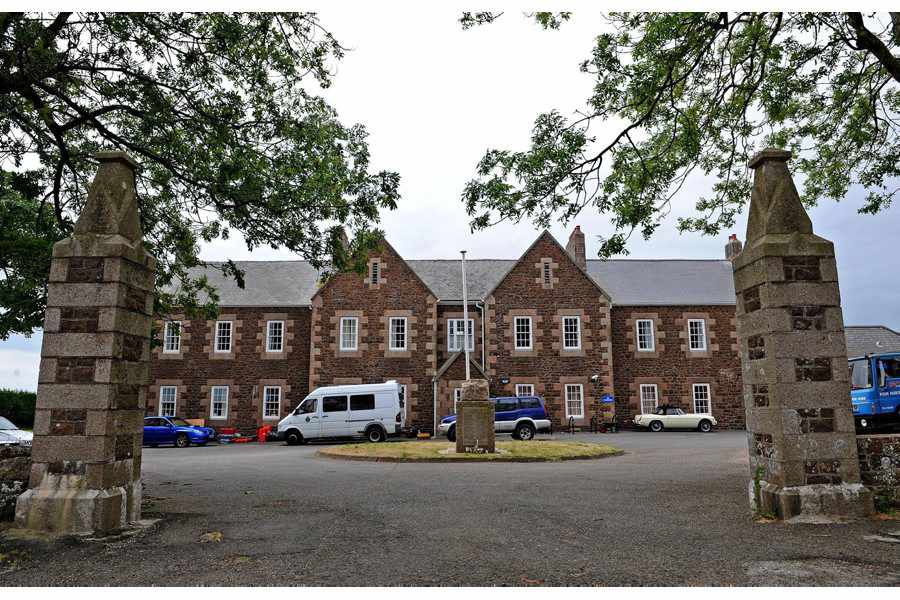
She was joined by abuse inquiry panel members Alyson Leslie, who has led serious case reviews into child abuse, and Sandy Cameron CBE, a former director of social work in Scotland.
In one of the last States sittings of the year, it was revealed that 64 per cent of claims for compensation for historical abuse had been settled.
Chief Minister Ian Gorst said that 131 claims had been received, 84 offers of compensation had been accepted, with 47 cases still under consideration.
2014






